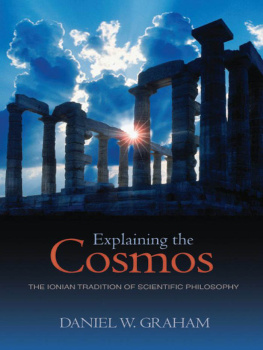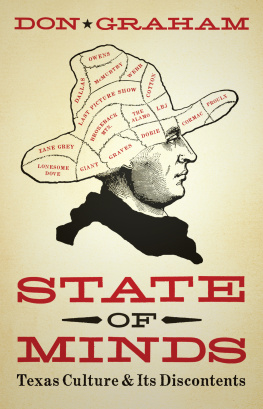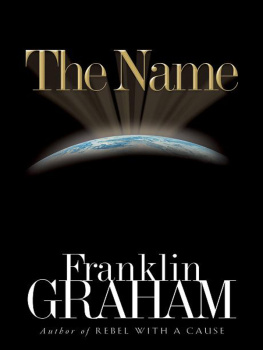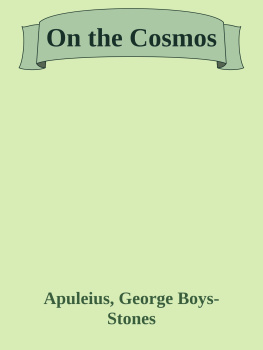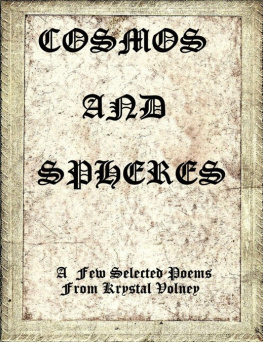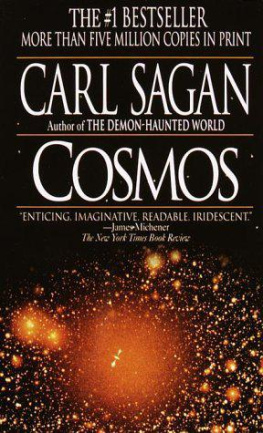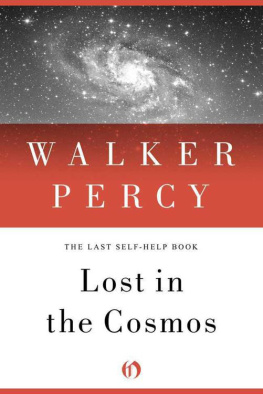Graham - Explaining the Cosmos
Here you can read online Graham - Explaining the Cosmos full text of the book (entire story) in english for free. Download pdf and epub, get meaning, cover and reviews about this ebook. City: Princeton, Greece, year: 2009, publisher: Princeton University Press, genre: Religion. Description of the work, (preface) as well as reviews are available. Best literature library LitArk.com created for fans of good reading and offers a wide selection of genres:
Romance novel
Science fiction
Adventure
Detective
Science
History
Home and family
Prose
Art
Politics
Computer
Non-fiction
Religion
Business
Children
Humor
Choose a favorite category and find really read worthwhile books. Enjoy immersion in the world of imagination, feel the emotions of the characters or learn something new for yourself, make an fascinating discovery.
Explaining the Cosmos: summary, description and annotation
We offer to read an annotation, description, summary or preface (depends on what the author of the book "Explaining the Cosmos" wrote himself). If you haven't found the necessary information about the book — write in the comments, we will try to find it.
Explaining the Cosmos — read online for free the complete book (whole text) full work
Below is the text of the book, divided by pages. System saving the place of the last page read, allows you to conveniently read the book "Explaining the Cosmos" online for free, without having to search again every time where you left off. Put a bookmark, and you can go to the page where you finished reading at any time.
Font size:
Interval:
Bookmark:

EXPLAINING THE COSMOS

EXPLAINING THE COSMOS

THE IONIAN TRADITION
OF SCIENTIFIC PHILOSOPHY
Daniel W. Graham
PRINCETON UNIVERSITY PRESS PRINCETON AND OXFORD
COPYRIGHT 2006 BY PRINCETON UNIVERSITY PRESS
PUBLISHED BY PRINCETON UNIVERSITY PRESS, 41 WILLIAM STREET,
PRINCETON, NEW JERSEY 08540
IN THE UNITED KINGDOM: PRINCETON UNIVERSITY PRESS,
3 MARKET PLACE, WOODSTOCK, OXFORDSHIRE OX20 1SY
ALL RIGHTS RESERVED
eISBN: 978-1-40082-745-9
LIBRARY OF CONGRESS CONTROL NUMBER 2006922883
BRITISH LIBRARY CATALOGING-IN-PUBLICATION DATA IS AVAILABLE.
THIS BOOK HAS BEEN COMPOSED IN SABON
PRINTED ON ACID-FREE PAPER.
PUP.PRINCETON.EDU
PRINTED IN THE UNITED STATES OF AMERICA
1 3 5 7 9 10 8 6 4 2
For Sarah and Joseph

CONTENTS

PREFACE

ICANNOT SAY EXACTLY when I began to work on this project. It grew out of a study of the foundations of Greek science, which I pursued while I was a visiting fellow at Clare Hall, Cambridge, in 198889. There I was privileged to sharpen my understanding of the issues in the company of Geoffrey Lloyd, Malcolm Schofield, David Sedley, and Myles Burnyeat, among others. Previous to this time I had been working mainly on Aristotle. It seemed to me that Aristotle was carrying out a scientific program that had its roots in Plato, who was following Socratic principles in reaction to an earlier conception of science embodied by the Ionians. I had intended to deal with scientific developments from the Milesians to Aristotle, and I even wrote a draft of this study, but it seemed weak and unpersuasive. I came to believe that more work needed to be done to clarify the positions of the Presocratics who pioneered the scientific outlook that in many ways anticipates our present attitude toward the world.
As I worked through the Presocratics and scholarship on them, I was struck by the fact that at one time, scholarly opinion seemed to be converging on something like the view that I advance in this work. But in recent years that view has been not so much refuted as ignored, as scholars tended to go back to the received opinion of the middle of the twentieth centurywhich happens to coincide in many respects with the interpretation of Aristotle and his school. What I argue for here is a revisionary view that owes much to Harold Cherniss and his criticisms of Aristotles historiography, especially as developed by Michael C. Stokes.
The kind of interpretation I criticize in the present study is embodied in two of the leading scholarly works of the English-speaking world: the second edition of G. S. Kirk and J. E. Ravens classic work The PresocraticPhilosophers, with Schofield as an added author, and Jonathan Barness book by the same title. These two books, so different in many waysthe former an advanced textbook with an emphasis on philology, the latter a philosophical study of arguments with an emphasis on logical analysisboth support a similar line of interpretation that has been orthodox for most of the twentieth century. The early Ionians were Material Monists whose assumptions were undermined by Parmenides and his Eleatic school. Thereafter, philosophers with an interest in cosmology desperately tried to answer the Eleatics by proposing pluralistic theories which, alas, failed because they begged the questionall except the atomists, who begged the question so grandly that they solved the problems (at least the physical problems). All of this is present in some form already in Aristotle, except the historical role of Parmenides in changing the focus of cosmological theory. My studies have convinced me that every feature of this interpretation is deeply mistaken, except for the general point that Parmenides in criticizing his predecessors had a profound impact on the pattern of cosmological explanation.
One might have expected the two volumes on Presocratic Philosophers, both of which are full of insights and novel interpretations in many details of their studies, to usher in a renaissance of Presocratic studies in the English-speaking world. Unfortunately, the two decades since their publication have been marked by a dearth of work on the Presocratics. To be sure, valuable translations, monographs, and editions have appeared in recent years, but the number of scholars working in the field remains small and their influence on other areas of philosophy limited. The reason for the falloff has been the booming interest in Hellenistic philosophy, which requires many of the same scholarly skills as study of the Presocratics, and has attracted the attention of many erstwhile scholars of the Presocratics, rather than any intrinsic defects of the Presocratics themselves.
I hope that this study will at least contribute to a revival of interest in the Presocratics. New works are emerging challenging many features of the standard interpretation by scholars such as Alexander Mourelatos, Patricia Curd, Carl Huffman, and John Palmer. I hope that the future will see a lively debate about the Presocratics, on foundational questions as well as on details of their theories and influence; and I hope that this study may present in a more attractive light some options that have been neglected.
I would like to thank my mentors at the University of Texas, Alexander Mourelatos and Paul Woodruff, for their continuing influence on me, as well as my friends from Cambridge. I have been helped by ongoing conversations with Patricia Curd and Victor Caston, as well as (former fellow students) Carl Huffman and Herbert Granger. I have profited from consultations with other leading scholars in the United States, including Alexander Nehamas, Charles Kahn, James Lesher, and Richard Mc Kirahan, and in Canada, T. M. Robinson and Brad Inwood. I have also been privileged to receive feedback from a lively community of scholars in Mexico, including Enrique Hulsz and Maria Teresa Padilla. I benefited from a meeting and correspondence with Jonathan Barnes at an early stage of this project. I have also been helped by discussions at international conferences in Lille, France; Mykonos, Greece; and Istanbul, Turkey.
My work in Cambridge was supported by a grant from Brigham Young University, and I have received paid leaves of absence from my university to pursue my research. As ever, I am grateful for the support of my wife, Diana, and my children (now grown), Sarah and Joseph, as we have traveled around the country and the world in search of knowledge.
In the text of this book I have tried to keep the argument accessible to nonspecialists. On the rare occasions in which I cite Greek, I provide a transliteration and translation. The footnotes, on the other hand, contain references in Greek, Latin, and some modern languages, for the benefit of scholars with specialized interests. In a few places I have presumed a basic knowledge of logic, but I have tried to avoid technicalities. I have published a number of more specialized studies on topics related to this book, which are cited in the references. All translations are my own except as otherwise noted.
My thanks to Joshua Gillon for preparing the index.
Font size:
Interval:
Bookmark:
Similar books «Explaining the Cosmos»
Look at similar books to Explaining the Cosmos. We have selected literature similar in name and meaning in the hope of providing readers with more options to find new, interesting, not yet read works.
Discussion, reviews of the book Explaining the Cosmos and just readers' own opinions. Leave your comments, write what you think about the work, its meaning or the main characters. Specify what exactly you liked and what you didn't like, and why you think so.

